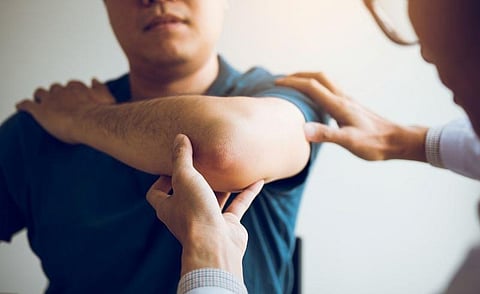WEDNESDAY, Jan. 24, 2024 (HealthDay News) -- Men with inflammatory joint diseases (IJDs) have a higher number of children and are less likely to be childless, according to a study published online Jan. 22 in the Annals of Rheumatic Disease.
Gudrun David Sigmo, from Stavanger University Hospital in Norway, and colleagues conducted a nationwide, population-based, retrospective cohort study involving 10,865 male patients with IJDs who were matched with 54,325 men without IJDs on birth year and county of residence. The mean number of children per man was compared between the groups, and the proportion of childless men was quantified.
The researchers found that the mean number of children per man was 1.80 and 1.69 in the patient and comparison groups, respectively; 21 and 27 percent of participants in the patient and comparison groups, respectively, were childless. Except for those diagnosed at age 0 to 19 years, the finding of less childlessness and higher number of children per man remained consistent across age at diagnosis. The most pronounced difference in childlessness was among men diagnosed after 2000, especially for those diagnosed at age 30 to 39 years (22 versus 32 percent).
"Based on the large study population, matched population subjects and methods of analysis, we have little reason to doubt our findings," the authors write. "Factors associated with developing or having an IJD might influence fertility and need to be further investigated."
Abstract/Full Text


